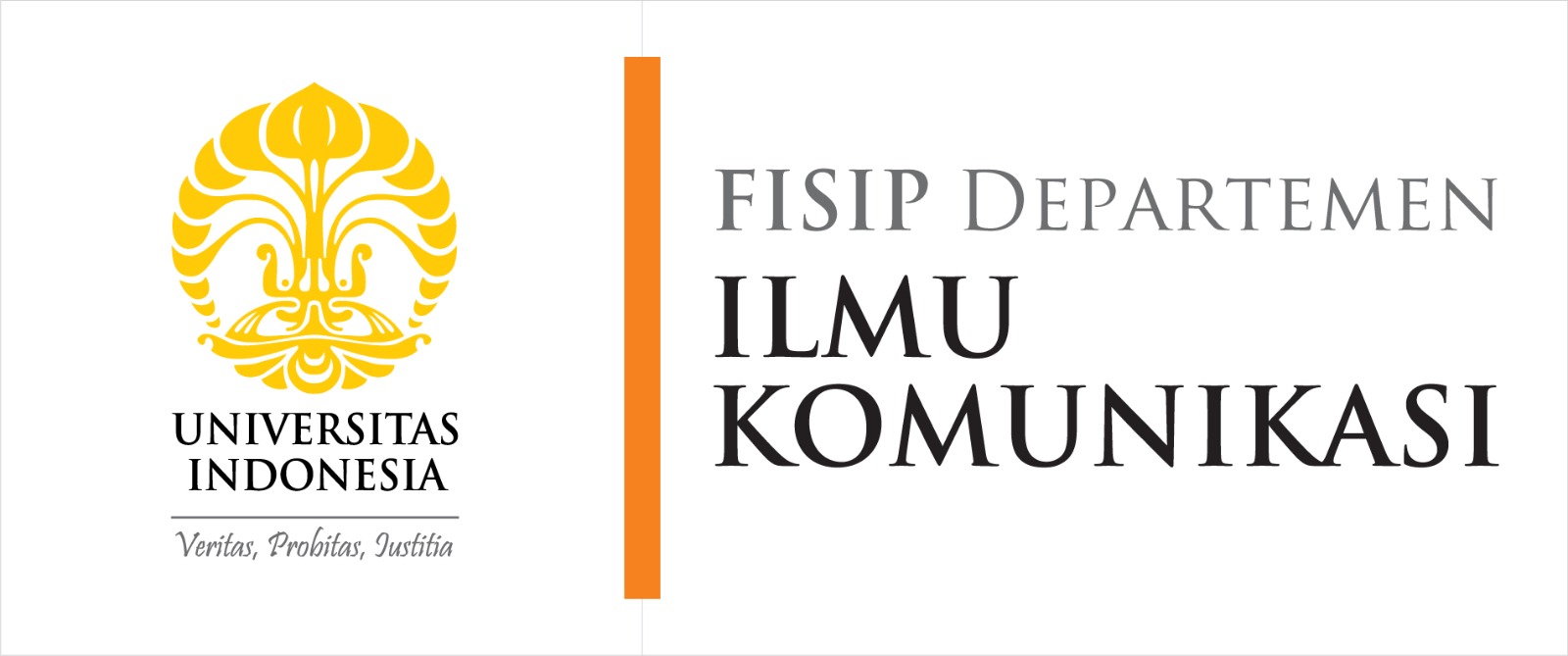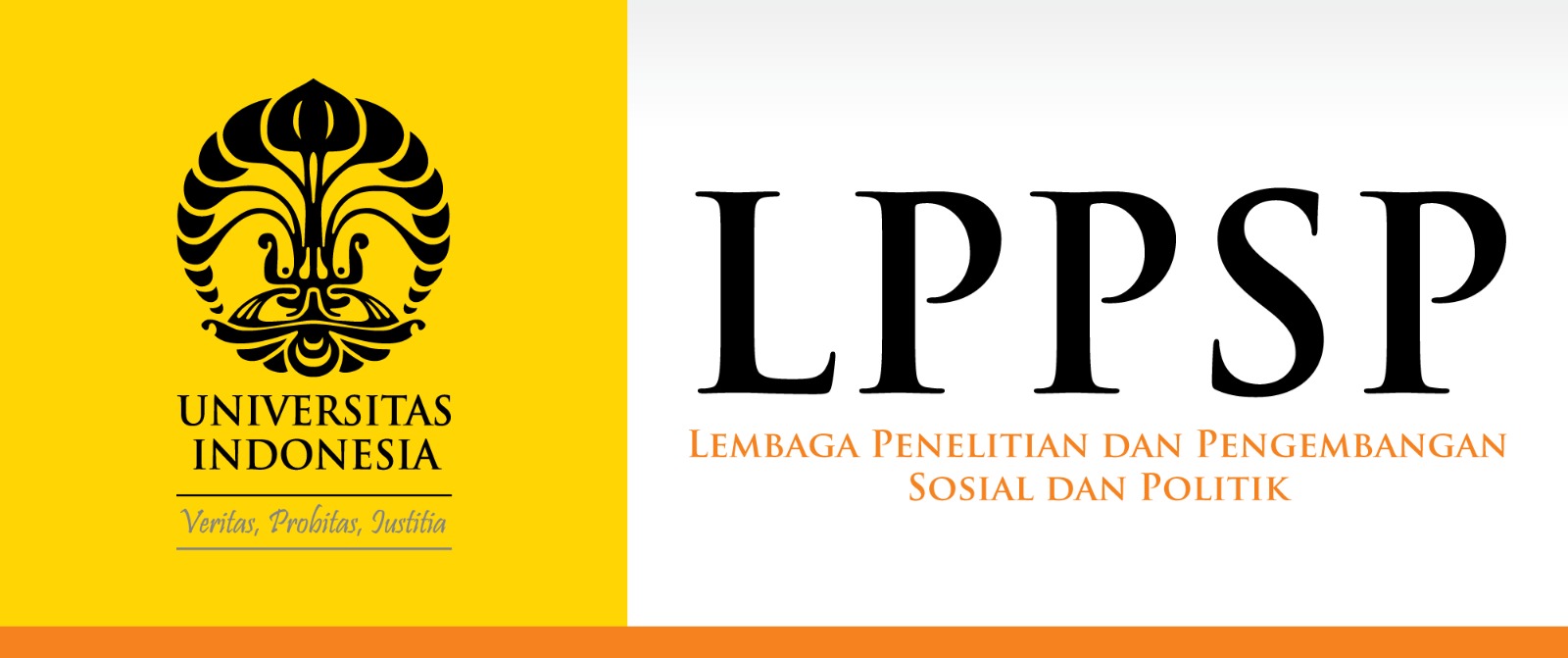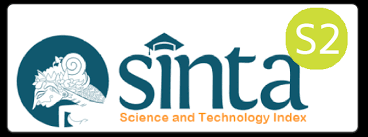JURNAL KOMUNIKASI INDONESIA
Abstract
Makalah ini membahas pertanyaan seputar ‘Apakah komunitas blogger yang direartikulasikan dari ‘hubungan hegemonik konservatif’ memiliki potensi untuk memberdayakan blogger Indonesia?’ Atau apakah berpotensi mereproduksi bentuk lain dari hubungan kekuasaan untuk blogger Indonesia, seperti dunia maya yang tidak selalu menjamin demokratisasi. Hal ini berkisar pada gagasan tentang komunitas, dimana era digital telah mengubah hubungan kekuasaan. Terdapat argumen bahwa apa yang disebut komunitas virtual cenderung mereproduksi mekanisme yang berkuasa dengan menciptakan kembali artefak digital sebagai pengingat untuk mempertahankan wilayah budaya. Penelitian ini adalah penelitian etnografi tentang blogging dan mencakup hampir empat tahun pengamatan partisipan dan wawancara informal dengan beragam blogger termasuk pria, wanita, pengadopsi awal dan pendatang baru, pendiri, administrator, orang-orang yang menulis blog secara profesional dan mereka yang menulis blog di waktu luang. Temuan saya menunjukkan bahwa budaya blogging Indonesia tidak merujuk pada ‘komunitas modern’. Budaya blogging orang Indonesia tetap mempraktikkan bahasa-bahasa kuno primordialisme tetapi dimediasi melalui model-model baru. Komunitas Blogger di Indonesia mencerminkan transaksi unik antara civitas dan polis. Di satu sisi mereka siap membangun identitas mereka sebagai anggota masyarakat (komunitas) tetapi di sisi lain, banyak juga yang mengembangkan identitas mereka sebagai anggota polis (masyarakat) dengan membangun artefak digital. Selain itu, praktik-praktik ini membutuhkan keanggotaan yang sangat melekat pada daerah dan wilayah.
This paper discusses questions around ‘Do blogger communities that are rearticulated from ‘old school hegemonic relations’ have the potential to empower Indonesian bloggers?’ Or do they, on the other hand, potentially reproduce other forms of power relationships for Indonesian bloggers, as cyberspace does not always guarantee democratisation. It revolves around the notion of community, which in digital era has decentre power relations. It offers an argument that what so called virtual community tends to reproduce ruling mechanism by recreating digital artefacts as trivial reminders to maintain cultural territories. This study is an ethnographic research on blogging and includes almost four years of participant observation and informal interviews with a diverse range of bloggers including men, women, early adopters and newcomers, founder, administrator, people who blog professionally and those who do so in their free time. My findings shows that Indonesian blogging culture does not refer to a ‘modern community. It remains practicing old languages of primordialism but mediated through new models. Blogger communities in Indonesia reflect a unique transaction between civitas and polis. On one hand they readily establish their identity as members of civitas (communities) but on the other hand, many also develop their identity as members of polis (society) by establishing digital artefacts. Additionally, these practices require memberships which are strongly attached to localities and territories.
References
ALI-HASAN, N. & ADAMIC, L. Expressing Social Relationships on the Blog through Links and Comments. International Conference on Weblogs and Social Media (ICWSM), 2007.
ANDERSON, B. 1983. Imagined communities: Reflections on the origins and spread of nationalism. , New York: , Verso.
B. NARDI, D. S. & GUMBRECHT., M. Blogging as social activity, or, Would you let 900 million people read your diary? . the Conference on Computer-Supported Cooperative Work, 2004 New York. ACM Press, 222-228.
BARZILAI-NAHON, K. & NEUMANN, S. Bounded in Cyberspace: An Empirical Model of Self-Regulation in Virtual Communities. System Sciences, 2005. HICSS '05. Proceedings of the 38th Annual Hawaii International Conference on, 03-06 Jan. 2005 2005. 192b-192b.
BAYM, N. 2000. Tunein, log on: Soaps, fandom and on-line community, CA, Sage, Thousand Oaks.
BAYM, N. K. 2002. "I Think of Them as Friends" Interpersonal Relationships in the Online Community. In: HUMEZ, G. D. J. M. (ed.) Gender, Race, & Class in Media. Sage Publications.
BELL, D. 2006. Cyberculture Theorists: Manuel Castells and Donna Haraway, Oxford, Routledge.
BERTRAND, J. 2004. Nationalism and ethnic conflict in Indonesia Cambridge ; Port Melbourne :, Cambridge University Press.
BHABHA, H. K. 2004. The location of culture, London; New York, Routledge.
BILLIG, M. 1995. Banal nationalism, London; Thousand Oaks, Calif., Sage.
BLOOD, R. 2002. The Weblog Handbook: Practical Advice on Creating and Maintaining Your Blog, Perseus Books Group.
BLOOD, R. 2004a. A few thoughts on journalism and what can weblogs do about it [Online]. Rebecca's Pocket. Available: http://www.rebeccablood.net/essays/what_is_journalism.html [Accessed 30 May 2011 2011].
BLOOD, R. 2004b. How blogging software reshapes the online community. Communication of the ACM, 47, 53-55.
BOYD, D. 2006. A Blogger ’ s Blog : Exploring the Definition of a Medium. Reconstruction: Studies in Contemporary Culture [Online], 6. Available: http://reconstruction.eserver.org/064/boyd.shtml.
CASTELLS, M. 1996. Rise of The Network Society (Castells, Manuel. Information Age, 1.) (Vol 1), Wiley.
CASTELLS, M. 2002. Epilogue: informationalism and the network society. In: HIMANEN, P. & TORVALDS, L. (eds.) The Hacker Ethic. {Random House Trade Paperbacks}.
COLCHESTER, M. 1986. Unity and Diversity: Indonesian Policy Towards Tribal Peoples.
Ecologist, 16. DAY, G. 2006. Community and Everyday Life, Taylor & Francis.
DICKS, B. 2004. Culture on display: The production of contemporary visitability, McGraw-Hill Education (UK).
DOUEIHI, M. 2011. Digital cultures, Cambridge, Mass., Harvard University Press.
ETZIONI, A. 2015. Community. In: MICHAEL T. GIBBONS, COOLE, D., ELLIS, E. & FERGUSON, K. (eds.) The Encyclopedia of Political Thought. Wiley Blackwell.
FUCHS, C. 2011. Internet and society : social theory in the information age, London, Routledge.
GAYATRI, I. H. 2010. Nationalism, Democratisation and Primordial Sentiment in Indonesia: Problems of Ethnicity versus Indonesian-ness (the cases of Aceh, Riau, Papua and Bali). Journal of Indonesian Social Sciences and Humanities, 3.
GEERTZ, C. 1973. The Interpretation of Cultures: Selected Essays, Basic Books.
HENDLER, J. & GOLBECK, J. 2008. Metcalfe's law, Web 2.0, and the Semantic Web. Web Semant., 6, 14-20.
HERRING, S. C., SCHEIDT, L. A., BONUS, S. & WRIGHT, E. Bridging the gap: a genre analysis of Weblogs. Hawaii International Conference on System Sciences, 2004 Big Island, HI, USA. IEEE Computer Society, 11 pp.-111.
HONEYCUTT, C. 2005. Hazing as a process of boundary maintenance in an online community. . Journal of Computer-Mediated Communication, 10, Article 3.
JACKSON, A., YATES, J. & ORLIKOWSKI, W. Corporate blogging: Building community through
persistent digital talk. 40th Hawaii International Conference on System Sciences, 2007 Hawaii.
JONES, Q. 1997. Virtual-Communities, Virtual Settlements & Cyber-Archaeology: A Theoretical Outline. Journal of Computer-Mediated Communication, 3, 0-0.
JONES, S. 1998. CyberSociety 2.0 : revisiting computer-mediated communication and community / Steven G. Jones, editor, Thousand Oaks, Calif. :, Sage Publications.
LIM, M. 2009. Muslim Voices in the Blogosphere: Mosaics of Local-Global Discourses. In: GOGGIN, G. & MCLELLAND, M. (eds.) Internationalizing Internet studies: Beyond Anglophone paradigms. New York :: Routledge.
LUDLOW, P. 1996. High noon on the electronic frontier : conceptual issues in cyberspace, Cambridge, Mass [u.a.], MIT Press.
LUSSIER, D. N. & FISH, M. S. 2012. Indonesia: The Benefits of Civic Engagement. Journal of Democracy 23, 70-84.
MALTZ, T. 1996. Customary Law & Power in Internet Communities. Journal of Computer-Mediated Communication, 2, 0-0.
MARLOW, C. 2004. Audience, structure and authority in the weblog community. The International Communication Association Conference. New Orleans, LA.
MASOLO, D. A. 2002. Community, identity and the cultural space. Rue Descartes, 36, 19-51.
MCLUHAN, M. & POWERS, B. C. 1989. The Global Village: Transformations in World Life and Media in the 21st Century., New York, Oxford University.
MUSSER, J., O'REILLY, T. & TEAM, T. O. R. R. 2006. Web 2.0 Principles and best practices. O'Reilly Media.
NAKAMURA, L. 2002. Cybertypes : race, ethnicity, and identity on the Internet / Lisa Nakamura, New York ; London :, Routledge.
NARDI, B. 2005. Beyond Bandwidth: Dimensions of Connection in Interpersonal Communication. Computer Supported Cooperative Work (CSCW), 14, 91-130.
NARDI., B. A. 2005. Beyond bandwidth: Dimensions of connection in interpersonal communication. Computer Supported Cooperative Work, 14, 91-130.
NARDI., B. A. 2010. My life as a night elf priest: An anthropological account of the world of warcraft., Ann Arbor, MI, University of Michigan Press.
PUTNAM, R. D. 1993. Making democracy work : civic traditions in modern Italy / Robert D. Putnam with Robert Leonardi and Raffaella Y. Nanetti, Princeton, N.J. :, Princeton University Press.
RETTBERG, J. W. 2008. Blogging / Jill Walker Rettberg, Cambridge, UK ; Malden, MA :, Polity Press.
RHEINGOLD, H. 2000. The Virtual Community: Homesteading on the Electronic Frontier, revised edition, {The MIT Press}.
RITTER, N. 2007. Blogs Are Not Virtual Communities. In: RITER, N. (ed.) Perfectspace. San Diego.
TÖNNIES, F. 1988. Community & society, New Brunswick, N.J., U.S.A., Transaction Books.
TÖNNIES, F. & HARRIS, J. 2001. Community and civil society [Online]. Cambridge; New York: Cambridge University Press. Available: http://site.ebrary.com/id/10062261.
TURKLE, S. 1995. Life on the Screen: Identity in the Age of the Internet New York, Simon and Schuster.
VAUGHN, B. 2010. Indonesia: Domestic Politics, Strategic Dynamics, and American Interests, DIANE Publishing Company.
WEI, C. 2004. Formation of Norms in a Blog Community. In: GURAK, L., ANTONIJEVIC, L. JOHNSON, C. RATLIFF, & J. REYMAN (ed.) Into the Blogoshpere. Rhetoric, Community and Culture of Weblog. University of Minnesota.
WEINREICH, F. 1997. Establishing a point of view toward virtual communities [Online]. Computer-Mediated Communication Magazine. Available: http://www.december.com/cmc/mag/1997/feb/wein.html.
Recommended Citation
Triastuti, Endah
(2019)
"Indonesian Blogger Communities: Display of Digital Artefacts As The Legitimate Ruling Mechanism,"
JURNAL KOMUNIKASI INDONESIA: Vol. 8:
No.
3, Article 3.
DOI: 10.7454/jki.v8i3.11839
Available at:
https://scholarhub.ui.ac.id/jkmi/vol8/iss3/3
Included in
Gender, Race, Sexuality, and Ethnicity in Communication Commons, International and Intercultural Communication Commons, Social Influence and Political Communication Commons




